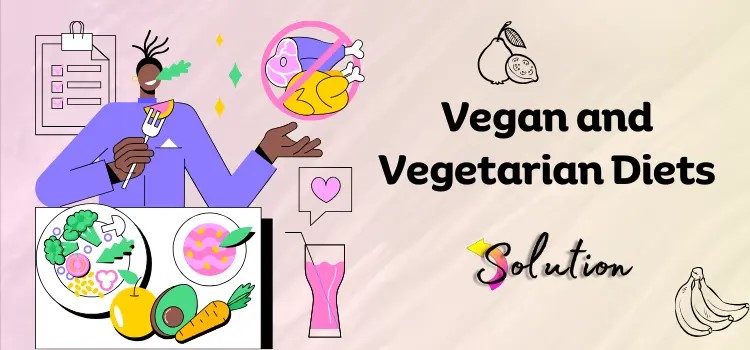
As more people turn to plant-based lifestyles, vegan and vegetarian diets are becoming increasingly popular for health, ethical, and environmental reasons. But what exactly do these diets entail, and how can you ensure you’re meeting your nutritional needs? In this blog, we’ll break down the differences, highlight benefits, and share practical tips to help you thrive on a plant-based diet.
What is a Vegetarian Diet?
A vegetarian diet excludes meat, poultry, and fish but often includes dairy products and eggs. There are several types of vegetarians:
-
Lacto-vegetarian: Includes dairy but not eggs.
-
Ovo-vegetarian: Includes eggs but not dairy.
-
Lacto-ovo vegetarian: Includes both eggs and dairy.
-
Pescatarian (semi-vegetarian): Includes fish but excludes meat and poultry.
What is a Vegan Diet?
A vegan diet is more restrictive and excludes all animal products, including:
-
Meat, poultry, and fish
-
Dairy
-
Eggs
-
Honey
-
Animal-derived ingredients like gelatin or casein
Vegans also often avoid non-food animal products such as leather, wool, and cosmetics tested on animals.
Health Benefits of Vegan and Vegetarian Diets
Plant-based diets are linked to a range of health benefits, including:
-
Lower risk of heart disease
-
Improved cholesterol and blood pressure
-
Reduced risk of certain cancers
-
Better weight management
-
Lower risk of type 2 diabetes
Many of these benefits are due to higher intakes of fiber, antioxidants, and phytonutrients, and lower levels of saturated fat.
Common Nutrient Considerations
While plant-based diets can be very nutritious, it’s important to ensure you’re getting enough of the following:
-
Protein: Beans, lentils, tofu, tempeh, quinoa, nuts, and seeds
-
Vitamin B12: Fortified foods or supplements (especially important for vegans)
-
Iron: Legumes, dark leafy greens, fortified cereals (paired with vitamin C for better absorption)
-
Calcium: Fortified plant milks, tofu, almonds, leafy greens
-
Omega-3 Fatty Acids: Flaxseeds, chia seeds, walnuts, algae supplements
-
Vitamin D: Sunlight, fortified foods, or supplements
Vegan vs. Vegetarian: Which One is Right for You?
Choosing between a vegan or vegetarian diet depends on your health goals, ethical beliefs, and lifestyle preferences.
-
Ethical reasons: Vegans often avoid all animal products due to concerns about animal welfare.
-
Health reasons: Both diets can be healthy, but vegan diets may offer additional benefits if well-planned.
-
Environmental reasons: Vegan diets tend to have a lower carbon footprint compared to vegetarian or omnivorous diets.
How to Get Started with a Plant-Based Diet
Here are a few tips to help you transition smoothly:
-
Start gradually – Begin by replacing one meal a day with a plant-based option.
-
Experiment with new recipes – Explore cuisines rich in plant-based dishes like Indian, Mediterranean, or Thai.
-
Stock your pantry – Keep staples like lentils, canned beans, whole grains, nuts, and seeds on hand.
-
Read labels – Watch out for hidden animal ingredients.
-
Find community – Connect with online groups or local meetups for support and inspiration.
Conclusion
Both vegan and vegetarian diets can offer numerous health benefits while aligning with ethical and environmental values. With proper planning, you can enjoy a balanced, delicious, and satisfying plant-based lifestyle.
Top Keywords for SEO:
-
Vegan diet
-
Vegetarian diet
-
Plant-based nutrition
-
Vegan vs vegetarian
-
Health benefits of plant-based diets
-
How to start a vegan diet
-
Vegetarian protein sources
-
Vegan nutrient deficiencies
Would you like me to turn this into a downloadable PDF, expand it into a longer article, or format it for a website/blog CMS like WordPress?




